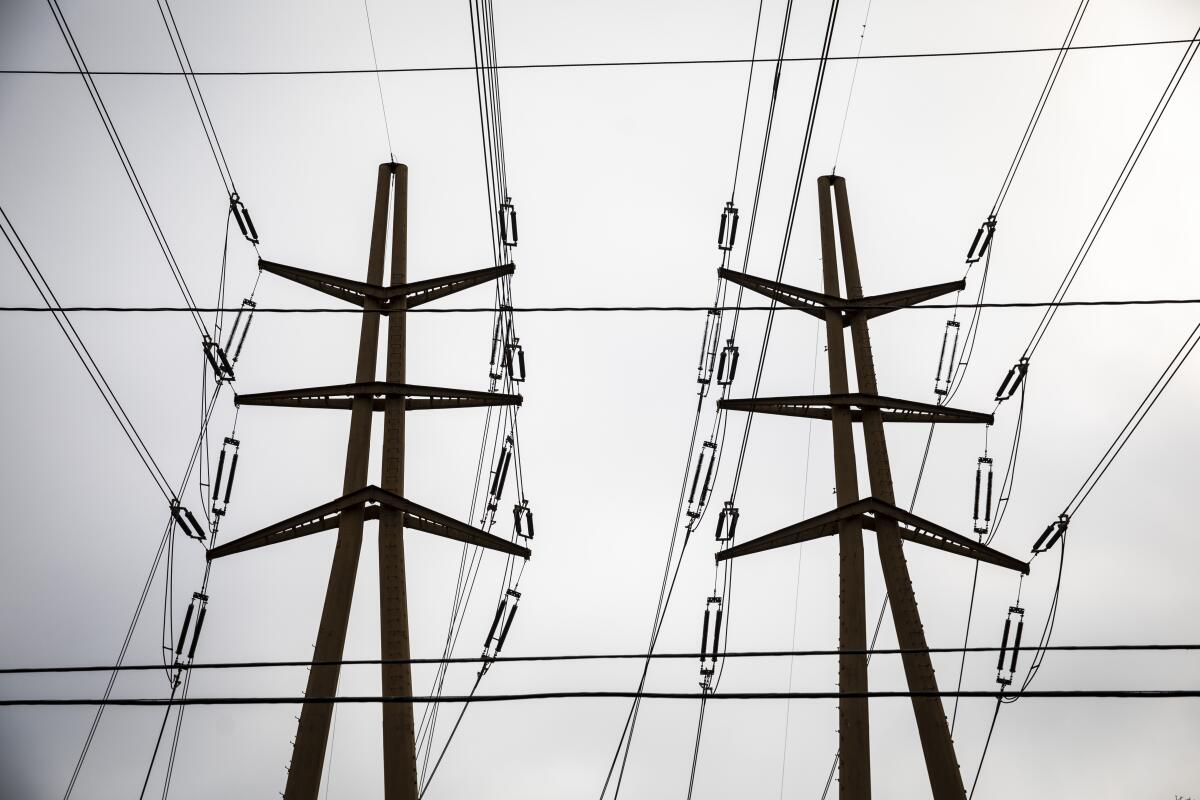Letters to the Editor: Make power companies test their fixed-rate plan first

- Share via
To the editor: The plan for utilities to levy income-based fixed charges is unlikely to encourage electrification or efficiency. (“California shouldn’t let power companies get their way on our electric bills,” editorial, April 27)
The charges will penalize customers who use small amounts of electricity and reward those who use large amounts. People living by themselves in small homes or those who have spent thousands of dollars to enhance the efficiency of their homes will see higher bills.
Since there is no empirical evidence that lowering energy charges by a third and introducing significantly high fixed charges will accelerate electrification, the state should conduct pilots to see if the theory holds. It did pilots for two decades with time-of-use rates before moving all customers to those rates.
The utilities have proposed fixed charges that are orders of magnitudes higher than those being charged anywhere else. Most are less than $25, and the national average is less than $11 a month. They could offer rates with fixed charges in the $25 range for those who are shopping for heat pumps or an electric car.
Ahmad Faruqui, Danville, Calif.
The writer is an energy economist.
..
To the editor: The Times’ editorial board reaffirmed that how customers are charged for electricity must change so that all customers support grid infrastructure costs without the burden continuing to land disproportionately on lower-income customers.
In response to state law, Southern California Edison was one of many participants that submitted a proposal for an income-graduated fixed charge within electricity bills. Separating fixed costs (for wires, poles, etc.) from electricity usage provides greater transparency on monthly bills. Edison’s proposal includes a 33% reduction in electricity usage rates for residential customers.
An important clarification is that California electric rates are decoupled from utility profits, so Edison does not gain additional revenue certainty through the fixed charge, nor does it earn more profit.
The California Public Utilities Commission is leading the review process. We expect the CPUC’s ultimate decision to provide the greatest benefit to the most customers while ensuring that utilities can safely provide affordable and reliable electricity.
Michael Backstrom, Rosemead
The writer is vice president of regulatory affairs for Southern California Edison.
..
To the editor: There is another thing for regulators to consider.
If the difference between an income-based bill and actual usage becomes too great, it will make sense for people with rooftop solar to consider installing a backup battery and cutting the cord completely.
That will leave electric companies facing the same competition that cable companies are now dealing with.
Hal Drake, Santa Barbara




